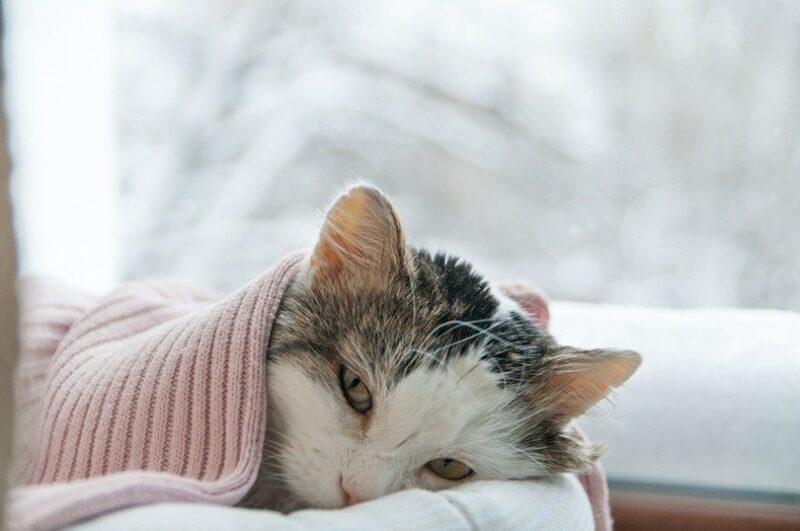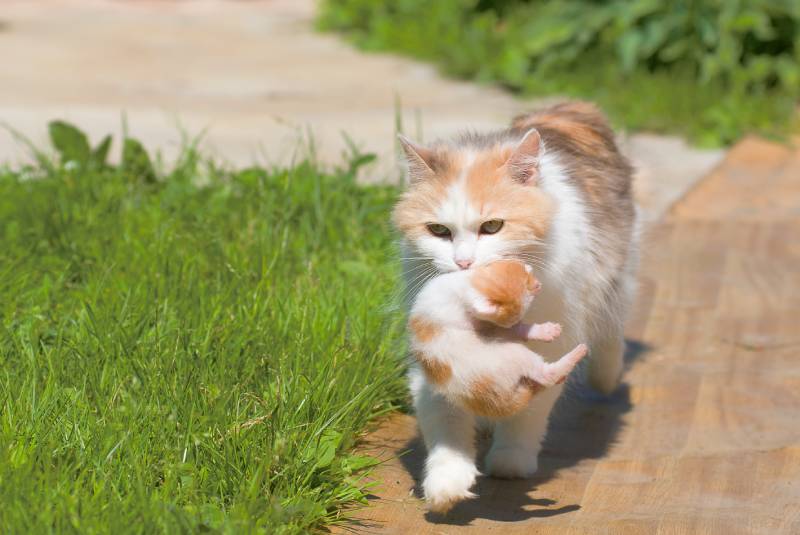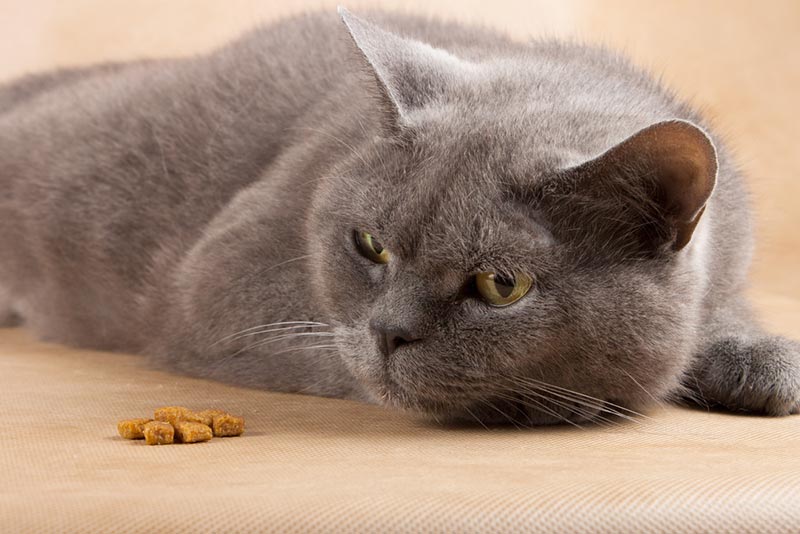
Click to Skip Ahead
Since you spend almost every day with your furry sidekick, you know their routines and habits better than anyone. Cats have very strong characters and don’t show signs of illness often. That is why when a real problem appears, you might have trouble identifying it. Cats will try to hide a medical condition, especially when they’re in pain, but body trembling cannot stay hidden for long.
Read the article below to learn all the possible reasons behind your cat’s trembling.
The 6 Potential Causes for Trembling in Cats
There are various reasons why your cat might be trembling, and below we will explain each possibility. The reasons vary from mild to severe health conditions. It is crucial to differentiate a severe problem from a common trembling reaction.
1. Stress and Anxiety
The most common reason for trembling in cats is fear or anxiety. Cats enjoy their routines and like to have their day with as little disturbance as possible. It is no secret they want things done their own way, and anything unsuspected can disturb their peace. This is why when a cat is under stress or feeling anxious, it might even begin trembling or shivering. Additionally, your cat may also keep their eyes wide open, staring at you or the thing which scares them. They may try to hide or run away and even become aggressive. As soon as you notice something is making your kitten nervous, remove it as quickly as possible.
2. Pain
Another very common cause of trembling is being in pain. Cats are very strong creatures emotionally, even those that are a little bit spoiled. You will know your cat is in pain if it has been injured recently and has a visible wound. Your cat may even start breathing through the mouth or refuse to move from a certain place. Avoid looking for the source of pain and seek immediate veterinary advice if you suspect your cat is hurt.

3. Hypothermia
Hypothermia is when your cat has a decreased body temperature. This may happen more often in small kittens, which cannot regulate their body temperature. When your kitten gets hypothermic, it will start trembling. Contact your veterinarian for guidance, as this is a very serious condition.
4. Hyperthermia
Unlike hypothermia, hyperthermia causes a cat’s body temperature to rise, usually when they have a high fever. Fever can cause your cat to start trembling, refuse to eat, and become lethargic. If you suspect your cat has a fever, call your veterinarian immediately for a visit.
5. Eclampsia or Hypocalcemia
Eclampsia, or hypocalcemia, is a medical condition in which a cat’s blood calcium levels drop so low that it becomes life-threatening. This condition is very common in nursing mothers or before giving birth and is characterized by trembling, restlessness, inability to walk, and fever.

6. Infections
Infections are another severe condition that can cause your cat to tremble violently. Depending on the type of infection and its location, your cat may only shake in certain areas of the body. Other signs accompanying trembling will be fever, odor in the affected area, and lack of appetite.
When You Need to See the Vet
While trembling is primarily a short-term sign or side effect, there are certain situations when an immediate vet visit is advised. Since cats have it in their nature to hide their pain and injuries from predators, you might have difficulty recognizing a problem in the first place. In addition to trembling being a reason to take your cat the their vet, additional concerning items to watch for include:

Final Thoughts
Learning about the various reasons behind trembling in cats is an excellent way to stay informed in case anything similar ever occurs to your cat. While shaking may be a normal reaction to stress or discomfort, it can also indicate a serious medical issue. Recognizing the first symptoms may be crucial in finding a solution and treatment as soon as possible.
Featured Image Credit: Xeniya Butenko, Shutterstock








